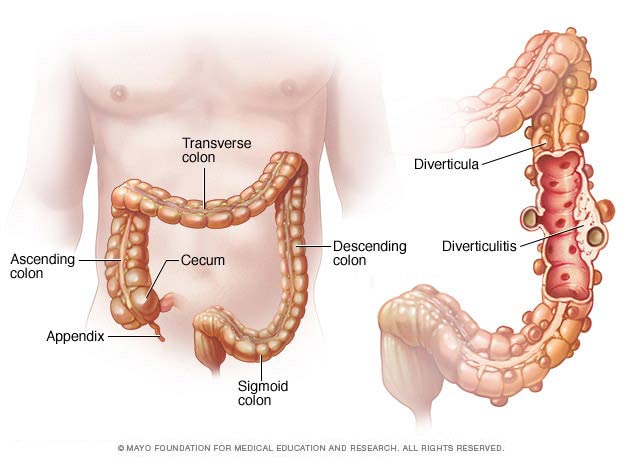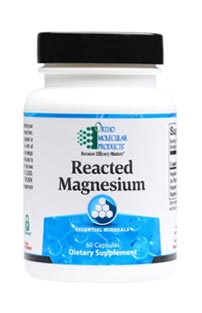What Is Diverticulitis and What Causes It?
What Are the Symptoms of a Diverticulitis Flare-Up?
Health Tips To Avoid Diverticulitis
What Is Diverticulitis? What Causes Diverticulitis?
Diverticulitis is a common digestive disease which occurs when small pouches (diverticula) which have developed along the wall of the colon become infected and inflamed.
▶︎ Overview of Diverticular Disease
As you age, the walls of your colon (large intestine) weaken. This increases the likelihood of diverticula forming when too much pressure is placed on the colon walls, such as when you pass hard stools.
The formation of the pouches themselves, known as diverticulosis, can be benign at first — until the diverticula become inflamed.
It is estimated that 30-40% of 60-year-olds have diverticulosis (pouch development). Cases of younger people developing diverticulosis, and in some cases diverticulitis, are on the rise as well.

What Are the Symptoms of a Diverticulitis Flare-Up?
Common symptoms associated with diverticulitis include abdominal pain and tenderness, constipation, cramping, bloating, fever, and occasionally rectal bleeding.
Consult your doctor at the first sign of fever or rectal bleeding.
What Are the Best Treatments for Diverticulitis?
A common principal cause of diverticulitis is a diet that is too low in fiber, which can lead to hard stools that put increased pressure on the colon walls as they pass. Therefore, the best way to prevent both diverticulosis and the diverticulitis flare-ups that may follow is to strive to maintain regular, soft bowel movements.
Diverticulitis Flare-Ups: Causes, Symptoms, and Home Remedies
Kristina Amelong, CCT, CNC discusses the causes and symptoms of diverticulitis and natural remedies to help address it. For most people healing from diverticulitis, it's important to make dietary changes, improve the health of the gut microbiome through colon cleansing and probiotics, and ensure that stools remain soft.
Health Tips To Avoid Diverticulitis
- High-fiber diets are best to help reduce your chance of diverticula forming in your colon. View Chart of High-Fiber Foods
- If you have trouble including enough fiber in your diet, consider a soluble fiber supplement such as Ortho Core Support to help support intestinal regularity and health.

- Drink plenty of fluids throughout the day.
- Some doctors recommend avoiding nuts and seeds.
- Probiotics may help by improving the overall health of your colon. Use a probiotic such as Ortho Biotic that is broad-spectrum and includes the Saccharomyces boulardii yeast strain.
- Maintaining balanced magnesium levels is important to ensure that your stools are soft. Reacted magnesium can help with this. Taking a Hair Tissue Mineral Analysis (HTMA) can provide you with more information about your body's magnesium levels.
- To ensure regular, soft bowel movements and a healthy colon, try our 3-step enema series 1 to 3 times per week.
Home Remedies for Diverticulitis Symptoms
If you're already experiencing symptoms associated with diverticulitis, the following may help:
Summary
Diverticulitis is very common, but is also preventable in many cases. The most important steps you can take to prevent diverticulitis are maintaining a healthy colon and soft, regular bowel movements. Eating foods that are high in fiber, regularly cleansing your colon, and taking the right supplements can be the key to diverticulitis prevention.
DISCLAIMER: The material on this page presented for informational purposes only and is not a substitute for medical advice, diagnosis, or prescribing from a licensed healthcare professional. Consult with your doctor before altering or discontinuing any current medications, treatment, or care, or starting any diet, exercise, cleansing, or supplementation program, or if you have or suspect you might have a health condition that requires medical attention.
By Kristina Amelong, CCT, CNC
I-ACT-Certified Colon Hydrotherapist
Certified Nutritional Consultant